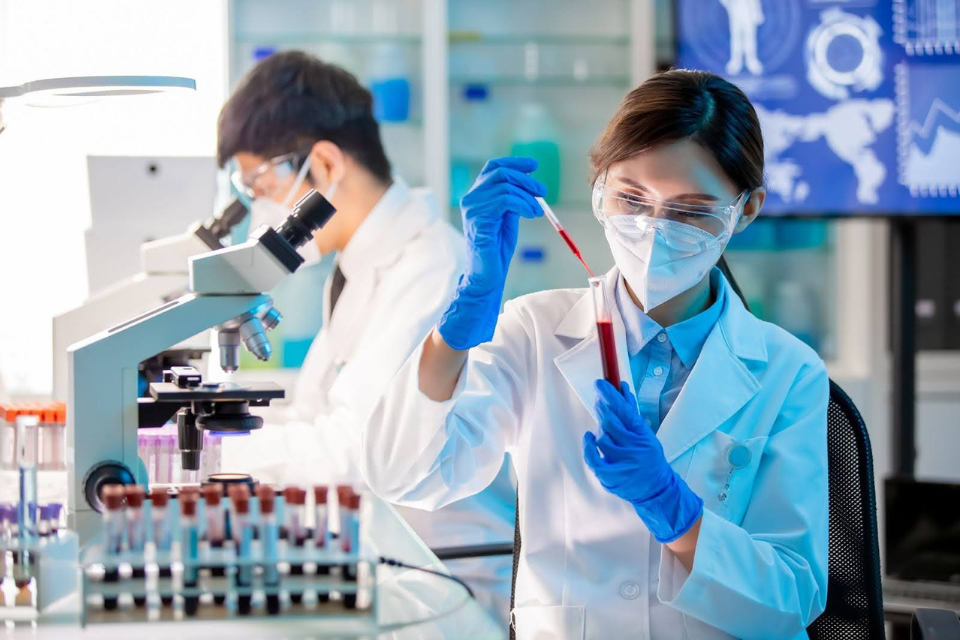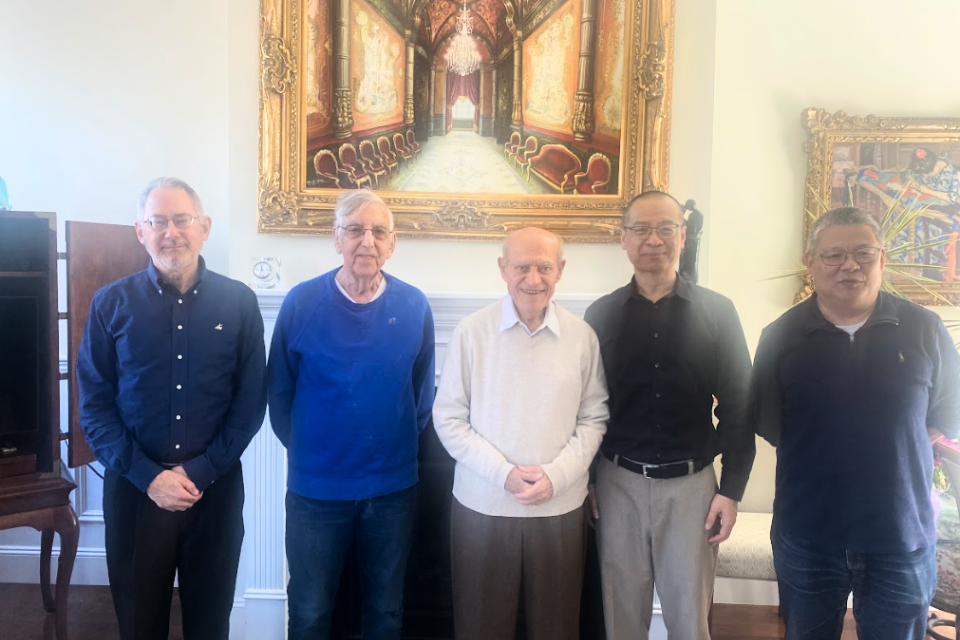Brandeis Alumni, Family and Friends
Brandeis Joins Collaborative Effort to Develop Lifesaving Artificial Blood
June 18, 2025
A cross-continental team, led by Brandeis chemist Bing Xu and funded by a visionary donor, sets out to create synthetic blood that could revolutionize emergency care.

Brandeis has joined a pioneering effort to develop artificial blood, a potentially lifesaving innovation aimed at transforming the future of emergency medicine, surgery, and trauma care.
The project is led by Bing Xu, the Charles A. Breskin Chair in Organic Chemistry at Brandeis. Xu joins a cross-institutional collaboration that also includes chemistry professors Sunny Zhou at Northeastern University and Ira Alan Weinstock at Ben-Gurion University of the Negev (BGU). Together, they will explore new materials and molecular systems that can safely transport oxygen in the bloodstream—potentially offering a critical alternative in scenarios where traditional blood transfusion is not possible.
The project is generously supported by Massachusetts-based chemist André Danesh, whose grandchild is currently a first-year student at Brandeis.
Professor Xu, a leading expert in materials chemistry and nanotechnology, is renowned for his work in self-assembling biomaterials, molecular design, and drug delivery systems. His lab at Brandeis focuses on creating small molecules or their assemblies that mimic biological molecules and processes – making him uniquely positioned to take on the complex challenge of developing novel oxygen-carrying blood substitutes.
“There is currently no FDA-approved artificial blood product, despite decades of attempts,” Xu said. “The need is urgent, and we now have advanced tools in chemistry and nanoscience to revisit this challenge with fresh perspective and real momentum. I’m honored to work with esteemed colleagues at BGU and Northeastern, and grateful to Dr. Danesh for making this ambitious project possible.”
Danesh, a 91-year-old Brookline resident and investor in securities and real estate, has dreamed of developing artificial blood since the 1960s, when he was a research associate at the Sorbonne in France and a professor of chemistry at the University of Massachusetts Boston. Although he temporarily left scientific research for a successful career in chemical sales and investment, he never abandoned his original vision. His recent philanthropic gift to support this research marks a return to his scientific roots and fuels early-stage studies into artificial oxygen carriers.
Danesh said that he is excited to work with three of the most highly qualified researchers in his longstanding pursuit of a bioengineered blood substitute. “I have this dream of making artificial hemoglobin,” Danesh said. “Now, working with Brandeis and these brilliant scientists, I’m seeing that dream take real shape.”
This initiative reflects Brandeis’s broader commitment to science that makes a global impact. The project also strengthens the long-standing ties between Massachusetts and Israel’s innovation ecosystem. BGU, a leading Israeli institution, will serve as a key research hub, drawing on its expertise in chemistry and life sciences.
Doug Seserman, CEO of Americans for Ben-Gurion University, emphasized the importance of the collaboration: “By supporting this research—with scientists from three institutions—Dr. Danesh is making a meaningful contribution to a global effort that could save lives around the world.”
The researchers hope this work will pave the way for a new class of lifesaving medical solutions. For Danesh, it’s also a personal legacy: a return to his passion and a reaffirmation of science as a tool for humanity.
“I’m happy and grateful to be part of this crucial initiative,” Danesh said. “I am cautiously optimistic that these researchers will be able to make artificial blood. “We hope our discoveries will make a difference, helping to save many lives in the future.”







